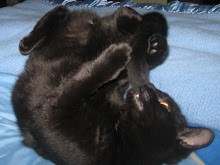"EQUAL PROSECUTION. CM spoke about an example of a juvenile crossing private property cutting donuts with a vehicle. She talked about prosecution and restitution and asked why some people are singled out for the exact crime and some are not. CA McNish said Municipal Court has no jurisdiction over juveniles. CM asked CA McNish to comment on fair and equal prosecution in town. CA McNish said he has been more than fair. No decisions were made."
Above is a quote from a recent city council meeting in Marysville, Kansas. City Attorney (CA) McNish was asked a direct question about underage drivers, often unlicensed, driving through fields, lawns, and gardens, and occasionally running over mailboxes. Marshall County Kansas will often throw the book at a teen for this, but then, sometimes not. City Attorney McNish spoke truthfully enough when he stated that the city of Marysville has no jurisdiction over juveniles, but what he did not discuss is the fact that his spouse, Laura McNish, is the county attorney, and it is the office of the county sheriff who would handle the arrest of a juvenile tearing up a lawn or field with a vehicle, or the arrest of a juvenile drinking alcohol. Often enough, children who do these things are duly prosecuted, but what happens if an underage witness, in a case against someone else being tried by the county attorney, is caught drinking beer? As it happened in May of 2013, the underage witness was not arrested, even though she was obviously drunk. Her changing testimony at the trial, which, by the way, the county attorney lost, was deemed too important to risk losing her cooperation by arresting her, as indicated by the law. What happens if the driver of a vehicle being driven over private property, and destroying the same, belongs to the son or daughter of someone in a position of authority in Marshall County or Marysville, Kansas? Do those young people live by the same rules? Apparently, a portion of the citizenry in Marysville think not; otherwise the question would not have been brought up at a city council meeting. County Attorney is an elected position, here in Kansas, and selective application of laws is not a way for elected officials to remain in office.
The Kansas Judicial Branch site has this to say about personal and public matters involving lawyers:
[5] A lawyer's conduct should conform to the requirements of the law, both in professional service to clients and in the lawyer's business and personal affairs. A lawyer should use the law's procedures only for legitimate purposes and not to harass or intimidate others. A lawyer should demonstrate respect for the legal system and for those who serve it, including judges, other lawyers and public officials. While it is a lawyer's duty, when necessary, to challenge the rectitude of official action, it is also a lawyer's duty to uphold legal process.
Anyone wishing to file a complaint with the Kansas Bar Association can print this complaint form and mail the hard copy to Disciplinary Administrator, 701 Jackson Street, First Floor, Topeka, Kansas, 66603-3729. All complaints must be written and snail mailed.

